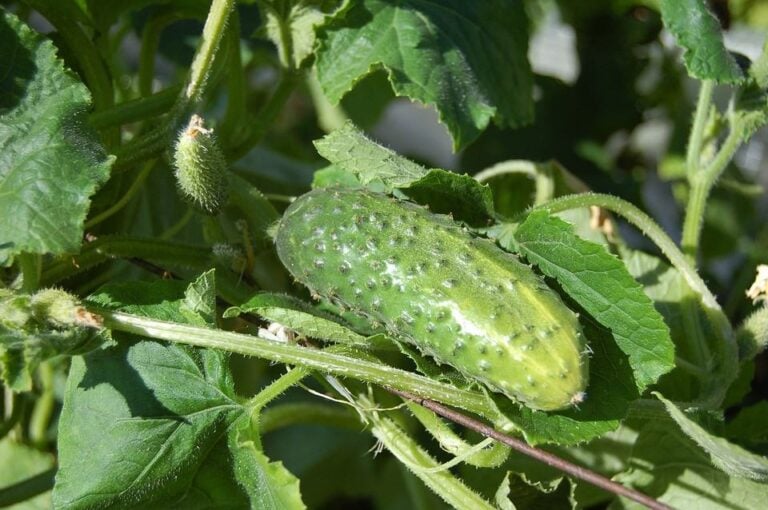A Guide on Preventing and Repelling Ticks as A Gardener
For many professional gardeners, ticks and other types of parasites are one of the main issues they have to deal with. These insects also represent a problem for many homeowners who care for their own yard or lawn.
Ticks, above all, are not only fastidious insects, but they can also transmit to both humans and animals a severe disease: the Lyme disease. Therefore, ensuring that your garden is free of these insects is extremely important.
In the last years, due to the environmental warming, the problem of the ticks is becoming a constant reality. These nasty parasites tend to leave their natural habitats and start populating urban areas as well. For this reason, even if you have a house in the town, you can still run the risk of having your garden infested by these parasites.
In addition, the global warming has also modified the lifespan of the parasites, that can represent a problem from the early months of spring until late fall.
While disinfesting a garden from ticks might seem a very complicated matter, there are a few simple and effective methods you can use to keep the ticks out of a terrain.
The experience taught me that the most important thing when fighting against ticks is to effectively prevent their growth, as wells as the growth of other insects, in the garden. However, disinfesting the garden is another important step you should take in ensuring the safety of your property.
This article on Preventing and Repelling Ticks as A Gardener: The Ultimate Guide should help you get rid of any ticks present on your lawn or in your garden fast and easy.
Ticks: Things You Should Know
Of a few millimeters in size, ticks are a species of arthropods belonging to the class of the arachnids. Spread all over the world, these small arachnids are grouped in over 900 species that are divided into two large families: hard ticks and soft ticks.
Regardless of the type, all ticks are hematophagous, which basically means that they feed on the blood of other species such as amphibians, reptiles, birds and mammals. In nature, one of the main hosts for ticks is the deer, while the pets can easily come in contact with the parasite during walks.
Habitat
Ticks live on the ground, especially in the areas with thick vegetation and with a high level of humidity. Typically, they can be found in forests or on fields with tall and thick grass. Generally, they don’t move much but wait until a suitable host (such as a wild or domestic animal, a bird or a human) pass by them so they can transfer to the host and feed with its blood.Although the natural habitat is a green area, such as a lawn, garden, pasture or forest, the ticks can be easily transported anywhere by the domestic animals or even by humans. It is not unusual, therefore, to find ticks among the ornamental plants that grow inside the house or on the private terrace or patio.
Evolutionary Cycle
Ticks have three development stages: larva, nymph, and adult. In all stages, the ticks feed on blood and they usually detect the presence of a host thanks to the carbon dioxide emissions, body heat, and vibrations caused by movement.
What Is The Danger?
Ticks represent a real danger not only to humans but also to many animals. These parasites are a major cause of allergic reactions that are triggered by the toxic substances contained in the salivary fluids of the ticks and that are released during feeding, but that’s not all. Ticks can also transmit a series of microorganisms that are responsible for some severe diseases.
In fact, the parasites can transmit from one host to another various pathogens, among which the one that can cause the Lyme disease, the tick-borne encephalitis, and the spotted fever.
While all the diseases mentioned above are severe, the spotted fever can easily lead to a person’s death especially if specific therapy is not made or if it is practiced too late.
Since the tick bite is not painful or itchy, it can easily pass unnoticed. For this reason, if you live in the countryside, or if you have a garden, you should take some precautions.
Prevention Measures
Now that you know which are the preferred areas of the ticks and what problems they can generate, you can adopt a few prevention measures before going on country walks or hikes or before doing any type of garden work.
First of all, you should wear light-colored clothing when performing any of the activities reminded above. Light colors are less attractive for arthropods and you will also be able to identify any parasites easier. Ideally, you should wear appropriate clothing that covers all your body, such as long pants and long-sleeved shirts. You should insert your pants in high socks or boots for further protection, especially if you suspect that your land is infested with ticks.
If for any reason you can’t cover your whole body, apply a tick repellent on the exposed skin. This includes your hands.
Apply a tick repellent on clothes, backpacks or any other items you carry.Avoid sitting or rolling on the grass and avoid the areas with dense vegetation.Have a shower as soon as possible after working or walking in an area with a dense vegetation.Examine your body carefully after you do garden work or go on hikes. On the skin, ticks appear as dark particles that are hard or impossible to remove.
How To Protect Pets?
When it comes to our pets, they can not only be affected by a disease transmitted by the parasite, but they can also act as carriers of the ticks, transporting them into our gardens or homes. For this reason, protecting your animals against these parasites is very important.
You should apply a veterinary use repellent on their fur on a regular basis and also inspect the fur of your pets regularly. Also, make sure that your pets are protected against any diseases by appropriate vaccines.This being said, if you have a garden or if you are a professional landscaper, you should start thinking about preventing and repelling ticks as a gardener.
Repelling Ticks
While the easiest way to keep ticks away from your garden or home is to prevent them from entering your territory, sometimes you will just have to deal with the unpleasant situation of having to disinfest your property. On the market, there are many ready-to-use products that can help you deal with these nasty parasites. However, if you feel that you should make your own tick repellent, follow the easy steps described below that will help you disinfest your terrain.
You will need:
- A bucket
- Bleach
- Medical use disinfectant
- Anti-tick spray
- Hydrogen peroxide
- Spray bottle
- Goggles
- Rubber gloves
How To Disinfest A Terrain?
Like I said, the easiest way to fight against ticks is to prevent them. Therefore, you should make sure that your garden is properly cleaned and cared for, cutting the tall grass and manicuring the bushes present on your lawn. You should also make sure that any domestic animal you own, including cats and dogs, are properly protected with appropriate anti-tick products.
However, if the terrain is already contaminated, you should disinfest it as soon as possible.
- The first thing to do is to move any domestic animals you have in a different location and apply the anti-tick spray everywhere on the terrain. The anti-tick spray should be bought based on the race of the animals you have (if any). A veterinarian or pharmacist should help you choose the best product for this operation. If you have to disinfest your hen-roost or hogsty, make sure that the areas are properly ventilated.
- The same product should also be sprayed everywhere around the garden and left to dry.
- If you don’t want to buy an anti-tick spray, you can use a mixture of warm water, bleach, and medical use disinfectant or hydrogen peroxide. Use the mixture to wash the hen-roost, hogsty or any other annexes of your garden, such as the sheds or dog kennels.
- Put a part of the same mixture in a spray bottle and spray it all over the garden to kill any present parasites.
- You should perform this operation each six months to kill any ticks that might have invaded your terrain.
- Another thing to pay attention to is to disinfect any spots where birds come to rest more often. For this, you will have to use special products that can be bought in any veterinary pharmacy or in the pet shops.
- First of all, you should properly cut the grass on your lawn and spray the products that will kill the ticks.
- Don’t forget to use goggles, gloves, and proper clothing when disinfesting your terrain. This is important not only to avoid the contact with the chemicals present in the anti-tick sprays or with the bleach but also to avoid the contact with any ticks present in your garden.
However, to eliminate the parasites present in your garden you don’t necessarily have to use chemical substances. The use of the pesticides or of other chemical substances is highly deprecated especially if there are any children or pets who play in the garden regularly.
If this is the case, you should know that there are some natural pesticides you could use that are not harmful to neither humans or the environment.
If you want to use an environmentally-friendly solution to keep ticks out of your lawn or garden, you should know that there are some infusions or essential oil mixtures that you can prepare and spray all over your property. Here are a few natural repellents you could use.
1. Rosemary And Cinnamon Repellent
This is a natural repellent made of two ingredients that can be easily found in most shops: essential oil of rosemary and essential oil of cinnamon.
Ingredients
- 10 drops of essential oil of rosemary
- 7 drops of essential oil of cinnamon
- 3 drops of essential oil of cedar
- 2 tablespoons of sweet almonds oil
How To Prepare
- Mix all the ingredients in a bowl, pour the mixture into a spray bottle and apply a small quantity of the mixture on the infested area.
2. Essential Oil Of Rose Geranium
This essential oil is a great repellent that you can apply not only on the terrain but also on the fur of your pets before taking them out for a walk. A few drops should be enough to keep the ticks away.
3. Citrus Fruits Repellent
Another natural tick repellent can be made of the lemon and orange peels. The repellent can be sprayed on the plants in your garden or used on your skin during hikes in the countryside or in the woods.
Ingredients
- Lemon peels
- Orange peels
- Water
How To Prepare
- Boil the citrus peels for five minutes, filter the liquid into a clean spray bottle and apply it on the plants and grass. Alternatively, you can apply it on the fur of your dogs or on your skin. However, don’t use this mixture on cats.
4. Sodium Bicarbonate Repellent
This natural remedy can be used on the plants, but it is also suitable to use on the ticks that are already attached to the skin.
Ingredients
- ½ teaspoon of sodium bicarbonate
- ½ teaspoon of salt
- 113 ml vinegar
- 113 ml warm water
How To Prepare
- Mix all the ingredients in a bowl then pour the liquid into a clean spray bottle. Sprinkle the solution on the plants and terrain or on the fur of your pets. If you notice any tick already attached to the skin, pour the liquid on a cotton swab and apply it above the tick.
5. Hot Chili And Garlic Repellent
This natural repellent will not only keep ticks away but will also keep away other types of insects such as mosquitoes and other parasites.
Ingredients
- 1 tablespoon hot chili powder
- 3 or 4 large garlic cloves
- 100 ml water
How To Prepare
- Boil the garlic cloves in 100 ml of water then add the chili powder. Add a few drops of vegetable oil to the mix and shake well to create an emulsion.Sprinkle the mixture on the plants and on the lawn.
6. Alcohol Repellent
This easy-to-make repellent is made of water and alcohol. You should simply add three-four tablespoons of alcohol into one liter of water and sprinkle it on your grass and garden plants. However, pay attention to not exceed with the alcohol or you might kill your plants too.
In addition to the methods described above, you should also know that on the market there is available an organic pesticide made of cooking oil. This product can be successfully used to kill the main parasites present in your garden, including ticks.
Another natural way to fight against ticks and other parasites is to act directly on the terrain of your garden. There is a natural substance available in a powder that is called diatomaceous earth. This substance is able to keep insects and parasites away, having a long lasting effect.
The effectiveness of the diatomaceous earth is given by its ability to remain in the terrain for very long periods of time, even up to ten years. However, you should know that this substance kills only some types of parasites, such as ticks and fleas, but it is harmless for earthworms, so you should still use alternative methods to ensure that your garden is completely safe.
Preventing Ticks
Once you have repelled all the ticks present on your terrain, you should adopt a few prevention methods to make sure that these dangerous parasites are kept away for good. It might seem impossible to keep your garden free of ticks on the long run, but actually, there are a few things you can do to eliminate them for good.
Manicure Your Garden
The first and the most important thing you can do is to care for your garden properly. As I mentioned above, the preferred habitats of the ticks are the shady and moist areas such as the tall grass, the bushes, and the weeds.
Therefore, the first thing to do is to get rid of all the vegetation that actually attracts ticks. You should keep your garden manicured, removing regularly all the dead or overgrown vegetation. You should also remove the plants that don’t allow the sun to permeate the garden, such as the vines.
The lawn is another part of your garden that should be kept manicured. To keep ticks away you should mow your lawn frequently. Short grass will not only expose ticks to the sun, but it will also allow the dew to evaporate faster, reducing the hydration of the parasites.
Another thing to get rid of is the weeds around your house and garden. You should use a weed eater to create a barren area between your garden and the terrain around it to avoid the passage of the ticks.
The dead leaves and the overgrown bushes are two other things you don’t want to have in your garden. Leaf piles and large bushes represent other ideal paradises where ticks can live, so make sure you remove all debris from your garden and lawn.
Grow Repellent Plants
Another way to keep your garden clean of parasites is to plant a few repellent plants, especially around the fences. Ticks don’t like particularly the scent of chamomile, lavender, mint or rosemary. Besides using infusions or essential oils of these plants to sprinkle all over your garden, you can also grow them on your terrain.
These types of plants, in addition to being tick repellent, also act as a repellent for other types of insects, such as mosquitoes and fleas. Therefore, having them in your garden will keep most parasites away.
Use The Right Mulch
Mulch is essential for the healthy growth of your plants, and using the right one can help you keep ticks and fleas away from your lawn. A plant that these parasites don’t like is the cedar, so using cedar mulch on your terrain might be an efficient method to reduce the risk of having ticks in your garden.
If your garden meets the forest, you might even want to create a natural barrier using cedar mulch along the edges of your garden.
Create A Barrier
Another thing ticks don’t like is to cross barriers of gravel or wood chips. For this reason, you could create a gravel or wood chips border between your garden and the wooded area.
Keep Wild Animals Away
If you live in the countryside you should know that wild animals, such as foxes or deer, can cross over your property. Among all the wildlife, the one you should really keep away from your garden is the deer who can carry a lot of ticks in their fur.
There are different ways to keep deer away. The simplest method is to build a fence around your garden. However, if this is not possible or if you simply don’t want to build one, you can plant some deer-resistant plants that will not attract this type of wildlife.
Some plants you can choose for this purpose are the catmint, speedwell, Dalmatian bellflowers, butterfly bush, Andromeda, arrowwood viburnum, hyacinth, snowdrops, netted iris, scilla Siberica, daffodils, and allium, to name just a few.
Alternatively, you can use some deer repellent solutions that are available at the veterinarian pharmacies. If you opt for this solution, make sure to read the instructions carefully and use the product regularly.
Keep Woodpiles Tidy

If you use wood for heating or for any other purpose, you should keep your woodpiles neatly stacked at all times. The best thing to do is to arrange the wood in piles and locate the piles in areas that are exposed to the sun. The sun exposure will not only help the wood dry faster but will also diminish the possibility that the woodpile becomes a welcoming house for the ticks.
Use Animals To Reduce Ticks
A few animals naturally feed on ticks and other parasites such as fleas and earthworms. If you like the idea of having a domestic animal that can control the tick population in your garden, then you should probably invest in a few chickens.
If growing chickens is not an option for you, know that almost all birds feed on ticks and parasites. To attract them into your garden you can simply place a few bird feeders next to the fences. However, consider carefully the risk of attracting other wildlife, such as squirrels and mice. In fact, both squirrels and mice can be attracted by the food present in the bird feeders. The downside is that these animals can carry ticks and they can infest your territory.
Also remember that even if most birds eat ticks, some of them, such as the pigeons, can also carry them. For this reason, you should keep the bird feeders clean and disinfect them regularly with a natural repellent.
Other animals that eat ticks are the hedgehogs and the geckos, so you might want to attract them to your garden.
Now, that you know how to prevent ticks and how to get rid of them, you should also learn how to behave in the case you get bitten by a tick.
What To Do In Case Of Tick Bite?
Since keeping your garden free of ticks is not always an easy task, at some point, you might have to face the situation of dealing with a tick bite. If you don’t know how to face such an issue, here is a quick guide that will explain what to do and when you should search medical help in the case a tick bites you.
The first thing to do if you notice that there is a tick attached to your skin is to remove the parasite. There are various methods to remove a tick from the skin, but probably the simplest way is with a pair of tweezers.
To remove it, you should first identify the head of the tick then grasp the tick with the tweezers as close as possible to the skin. Pull the tick firmly without twisting the tweezers. Clean any remained parts from your skin, wash the bite with warm water and mild soap then disinfect with medical alcohol.
During the removal process pay attention to grasp the parasite’s head and not the body. If you accidentally grasp the body of the parasite it might release more saliva and blood, increasing the chances to transmit you any disease.
If you have difficulties in removing the tick you should ask the help of a physician.
Although ticks can transmit some severe diseases, most of the times their bite doesn’t do much harm. However, if you got bitten by a tick keep the bite under observation for a few days. If you notice any unusual signs, such as inflammation, itchiness, or systemic symptoms such as a headache, dizziness, fever or muscular pain you should see your doctor as soon as possible.
If the bite feels itchy, you can alleviate the discomfort by applying ice on the bite for about 15 minutes per hour for about six hours. If the bite triggered an allergic reaction you should take some antihistaminic medication.
In the case of flu-like symptoms in the next three-four weeks after the bite, you should consult your physician.
If you have children, check their skin immediately after playing in the garden. If you identify and tick attached to their skin remove it using the method described above.
Although ticks rarely transmit diseases, in the case of the children you might want to seek specialist advice as soon as possible.
In the case of your pets, if you notice a tick bite or if you find a tick attached to their skin seek a veterinarian and check if your pet has the complete vaccination scheme. A tick bite can be fatal especially for puppies and kittens.
Final Thoughts
Ticks are definitely on the top of the nastiest parasites you could deal with. While prevention is extremely important, sometimes they will still manage to infest your territory.
On the other hand, due to the constant environmental warming, ticks tend to proliferate and populate not only the forests and woods, but they become a real problem for the urban spaces as well.
As there is little to do about this, all you can do is to make sure that you are using the right repellents to prevent them from living on your property.
Have you ever had to deal with a tick infestation? How did you clean your property from these parasites? Leave a comment below with any advice or concerns you might have. We would love to hear from you.
Do you know anyone who is facing a tick problem? Do you think that this article might help your friends who are dealing with ticks? Share these tips with them too.







I purchased nasturtium seedlings and planted them in a hanging pot which-I have done before. They are growing great about 8-10 inches of lovely leaves but no flowers. Is there something I can do to make them flower?